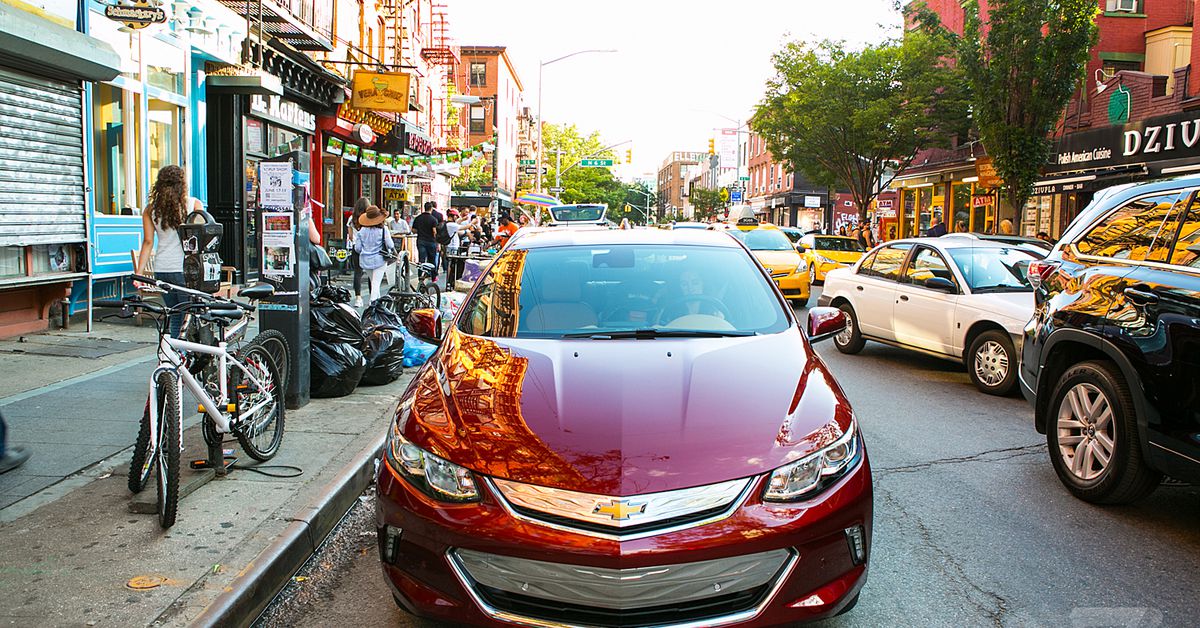
General Motors’ shift from an internal combustion engine-producing company to one that makes electric motors is sputtering. EV sales are up, but growing slower than expected. The company’s next-generation Ultium platform, in particular, isn’t meeting expectations. GM’s new electric trucks and SUVs seem perennially delayed — or full of buggy software.
I think I have an easy solution to a lot of these problems: bring back the Chevy Volt.
Remember the Volt, GM’s scrappy Toyota Prius fighter from the mid-2010s? The company was lauded when it first came out in 2010 as a prescient bet on vehicles with electric powertrains. And it was undeniably a very good hybrid. The first-generation model got 36 miles of electric range before the gas kicked in, while later versions would get a whopping 53 miles of electric range.
I think I have an easy solution to a lot of these problems: bring back the Chevy Volt
That was enough for most people to cover their daily driving. Volt owners would often brag about not having to fill up their gas tanks in months or even years.
But low sales and a broader shift to big trucks and SUVs doomed the Volt, which got discontinued in 2019 as part of a wider restructuring at GM. Still, there’s no time like the present to admit the error of your ways and put this baddie back into production.
Why now? Well, first GM’s dealers are literally clamoring for hybrids. The Wall Street Journal reported today that certain influential dealers — the ones that serve on GM advisory committees — are urging the automaker to get back into the hybrid market. The reason? EVs continue to be a tough sell for a lot of them.
“The dealers said they expressed concern that more customers are looking for a middle ground between conventional gas-engine cars and EVs, which are more expensive and require regular charging,” WSJ reports.
Have you heard? Hybrids are so hot right now. The once-maligned Prius has a slick new design that has car reviewers fanning themselves. Ford can’t keep up with demand for the hybrid version of its compact Maverick pickup truck.
Overall, hybrids are having a bit of a renaissance. “Hybrids are the more comfortable choice for the majority of Americans seeking electrified options right now,” Edmunds says, noting that hybrid growth in 2023 — up 65 percent — is much faster than pure battery-electric vehicles — only up 46 percent. GM’s dealers want in on the action, jealously eyeing the Jeep and GMC dealers across the way.
Of course, there are credible arguments against hybrids. The current climate crisis we’re facing right now doesn’t call for half measures — and hybrids are literal half measures. We need to dramatically reduce our fossil fuel consumption, which is why the Biden administration is goin all in on battery EVs. This transition needs to happen as fast as possible.
That’s why you see so many environmental groups go after Toyota, which has been one of the most vocal skeptics toward pure EVs in favor of hybrids. The company argues its taking a more pragmatic approach to electrification, but climate groups argue the company isn’t moving fast enough to reduce carbon emissions.
If GM were to resurrect the Volt, it would need to do so in a way that makes it clear that it’s not taking away resources from its EV production, nor delaying its promised transition to a zero-emission company. It would also prove that there’s still a demand for smaller, sedan-like vehicles in the market, despite GM’s past actions to end production for anything that’s not a truck or SUV.
There’s evidence that GM will bring back certain brands when its clear there’s demand. The company originally said it would be killing off the Chevy Bolt — only to backtrack months later and rededicate itself to the Bolt on its next-gen Ultium platform.
Hell, it would be great to see a Chevy Volt with an Ultium-branded powertrain, proving that there’s room for plug-in hybrids in GM’s future lineup. It seems like a no-brainer.
https://www.theverge.com/2024/1/29/24054578/gm-chevy-bolt-hybrids-ev-sales-ultium

